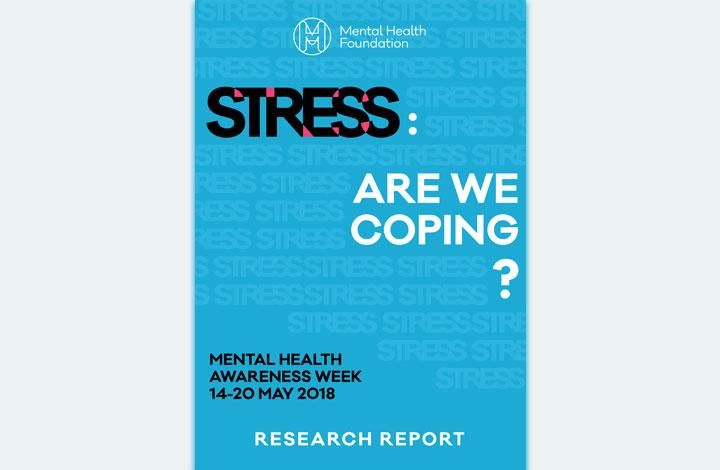This content mentions suicide or suicidal thoughts, self-harm, trauma, anxiety and depression. Please read with care. There are details of where to find help at the bottom of this page.
Our animation explores stress - what it is, how we're coping and how we can do better.
For Mental Health Awareness Week 2018, we focused on stress. While stress is a normal reaction, too much stress can be harmful.
There are times we all feel under enormous pressure. Like when you have a million deadlines and not enough hours in the day. Or when the kids need to be taken to football practice and you haven’t cooked the dinner. Or when you’re studying for exams. Or when a friend or relative becomes ill. We can also go through traumatic events that knock us sideways.
At times like these, we can start to feel overwhelmed or unable to cope. That feeling is often called stress.
Stress has been a part of life for thousands of years, and a certain amount of stress can be a good thing. But when stress gets out of control, the consequences can be serious.
Stress can be a key cause of anxiety and depression and is sometimes linked to self-harm and suicide. It can also have serious physical impacts. Stress can increase the risk of heart disease and it can affect our ability to get to sleep and stay asleep. It is linked to muscle pain and can even damage our immune system.
We know we are too stressed, too often.
Our polling has shown that over the past year in Britain:
- Almost three quarters of people have at some point have felt so stressed, they’ve felt overwhelmed or unable to cope
- Two thirds of us experience a mental health problem in our lifetime
But it doesn’t have to be this way. By tackling stress, we lower the risk of future mental health problems. But how can we do this?
We can start with you and me
- Try to think through what is causing stress and how it could be managed differently
- It may help to get a bit more physical exercise. Going for that walk or swim helps balance life. Exercise is a proven way to reduce stress
- You could try reducing drinking and smoking, which can make problems worse rather than better
- Take a break. Even short breaks from work or a person you find difficult can help manage the stresses and strains of daily life
- Try a few minutes of mindfulness each day. We know from research that mindfulness is effective in reducing stress and anxiety
But we can also do things as a society
- We’re calling for businesses to support better work-life balance and tackle work-related stress
- We’re calling for schools and teachers to work with children to ensure that stress isn’t stopping young people from thriving
- And we’re calling for better support for society’s most vulnerable, to reduce stressors caused by poverty, poor housing and social isolation
Stress: Are we coping? report
This report looks at the prevalence of stress in the UK and its implications. It also focuses on what we can do to manage and reduce stress and our recommendations for the government in creating a stress-free UK.
Read the report
If you are feeling like ending your life or feel unable to keep yourself safe, please call 999 or go to A&E and ask for the contact of the nearest crisis resolution team. These are teams of mental health care professionals who work with people in severe distress. If you feel affected by the content you have read, please see our get help page for support.